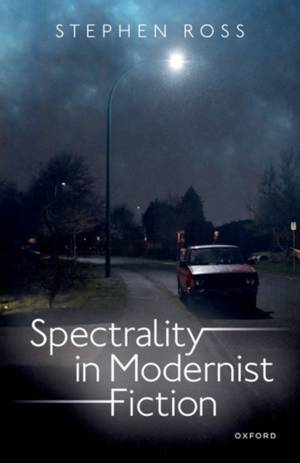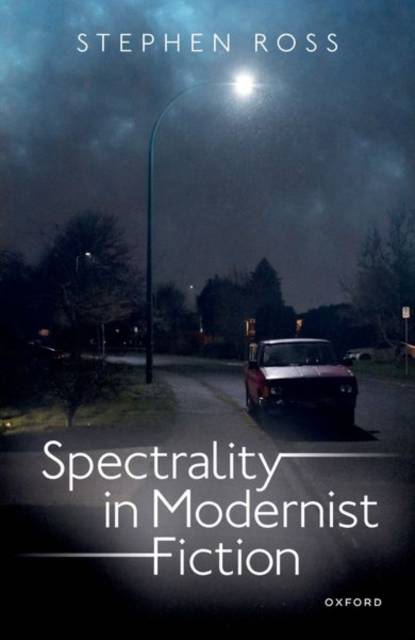
Je cadeautjes zeker op tijd in huis hebben voor de feestdagen? Kom langs in onze winkels en vind het perfecte geschenk!
- Afhalen na 1 uur in een winkel met voorraad
- Gratis thuislevering in België vanaf € 30
- Ruim aanbod met 7 miljoen producten
Je cadeautjes zeker op tijd in huis hebben voor de feestdagen? Kom langs in onze winkels en vind het perfecte geschenk!
- Afhalen na 1 uur in een winkel met voorraad
- Gratis thuislevering in België vanaf € 30
- Ruim aanbod met 7 miljoen producten
Zoeken
Omschrijving
Spectrality in Modernist Fiction argues that key modernist writers, chiefly Conrad, Forster, Butts, and Bowen, use spectral rhetoric to tackle problems of sex and sexuality, revolution, imperialism, capitalism, and desire all through complicated ethical engagements. These engagements invariably come packaged in, and are shaped by, the language of spectrality. In its capacity to articulate a particular sort of relationship between the past, the present and the future, the spectral concerns the basic question of how to proceed, how to live with-maybe even address-ethical indeterminacy. Whether their spectral rhetoric traces the logics of capitalist possession (Conrad), queer "friendship" and paganized Christianity (Forster), regressive politics haunted by historical traumas (Butts), or the devious passages of perverse desire (Bowen), these writers locate something like hope in their ghosts. The ethical and political impasses they chart through their spectral rhetoric are not final, but temporary, and the drive to overcome them constitutes a tensile optimism.
Specificaties
Betrokkenen
- Auteur(s):
- Uitgeverij:
Inhoud
- Aantal bladzijden:
- 206
- Taal:
- Engels
Eigenschappen
- Productcode (EAN):
- 9780192888358
- Verschijningsdatum:
- 13/10/2023
- Uitvoering:
- Hardcover
- Formaat:
- Genaaid
- Afmetingen:
- 162 mm x 235 mm
- Gewicht:
- 458 g

Alleen bij Standaard Boekhandel
+ 290 punten op je klantenkaart van Standaard Boekhandel
Beoordelingen
We publiceren alleen reviews die voldoen aan de voorwaarden voor reviews. Bekijk onze voorwaarden voor reviews.









